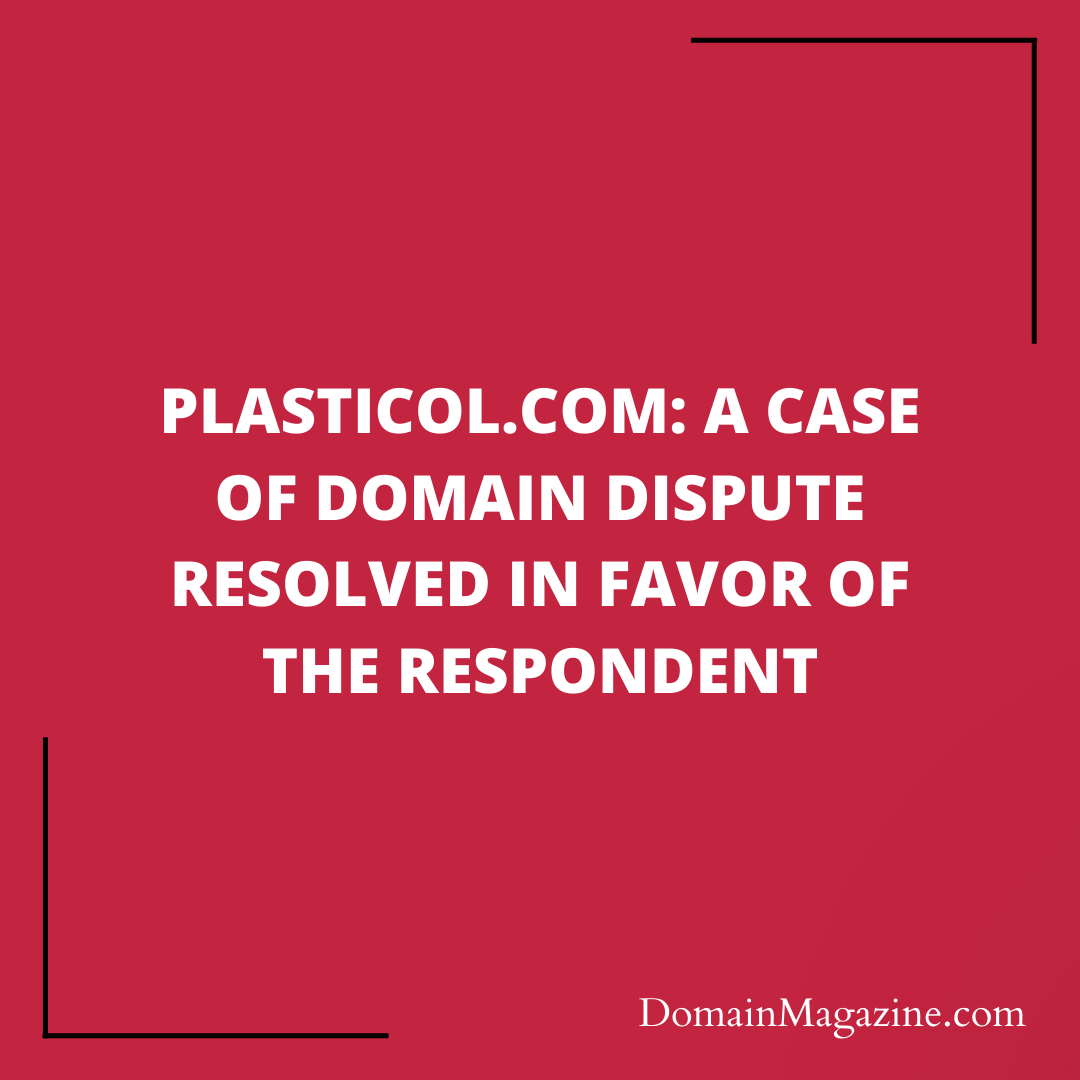Domain name disputes can often be intense battles over digital real estate. However, in a recent case involving the domain name plasticol.com, a panel of experts has reached a decision that raises important questions about the boundaries of domain ownership and the criteria for establishing bad faith. This case, involving an Argentine Complainant and an experienced domain investor, is a fascinating exploration of trademark rights, domain portfolio management, and the intricacies of domain dispute resolution.

Background:
The dispute centers around the domain name plasticol.com, which was registered on February 7, 2017. The Complainant, an Argentine company with a long history of manufacturing and selling adhesives, acquired a portfolio of trademarks for the term “PLASTICOLA” in 2022 and 2023. The Complainant’s predecessor had also registered and used the domain name <plasticola.com.ar> since 2014. The disputed domain, plasticol.com, currently points to a page hosted at DAN, a domain marketplace, with a listing price of USD $6,995. The Complainant alleges that the Respondent registered the domain with the primary intention of selling it for a profit, suggesting that it lacked any bona fide reason for its registration.
Key Facts:
- The Complainant has a history dating back to 1962 and recently acquired trademarks for “PLASTICOLA.”
- The disputed domain plasticol.com was registered in 2017 and is currently listed for sale.
- The Respondent, an experienced domain investor, claimed to have acquired the domain as part of a routine acquisition process.
- The Respondent has a portfolio of thousands of domain names, including others with similar patterns.
- The Complainant’s trademark rights were recently assigned, and its presence outside Argentina was limited.
Panel’s Decision:
The panel, consisting of Mr. Nick J. Gardner, Mr. Georges Nahitchevansky, and Ms. Diane Cabell, delivered a decision that favored the Respondent. Their rationale hinged on several critical factors:
- Lack of Knowledge: The Respondent credibly denied knowledge of the Complainant or its “PLASTICOLA” trademark when registering the disputed domain. There was no evidence of reputation for “PLASTICOLA” beyond Argentina, and the Complainant did not register plasticol.com until 2023.
- Value as a Portmanteau: The panel accepted that the Respondent acquired the domain because of its value as a “portmanteau” term, combining the common word “plastic” with the suffix “ol.” This indicated a lack of targeting the Complainant or its trademark.
- Absence of Bad Faith: The Respondent’s registration and use of the disputed domain were not in bad faith, as they were legitimate actions driven by the domain’s descriptive qualities.
- Offer for Sale: Offering a domain name for sale is not inherently indicative of bad faith, as long as there is no other evidence to suggest bad faith. The panel found no such evidence.
Conclusion:
In this domain dispute case, the panel’s decision underscores the importance of considering the broader context when evaluating domain ownership. The Respondent’s acquisition of plasticol.com was based on its inherent value as a descriptive term, and there was no evidence of targeting the Complainant or its trademark. This case serves as a reminder that domain disputes should be approached with a nuanced perspective, taking into account the specific circumstances surrounding each registration. Ultimately, the decision reinforces the principle that not all domain acquisitions are driven by bad faith, and legitimate domain portfolio management remains a valid practice in the online world.
Read the full case here: https://www.wipo.int/amc/en/domains/decisions/pdf/2023/d2023-2284.pdf


Join the Discussion